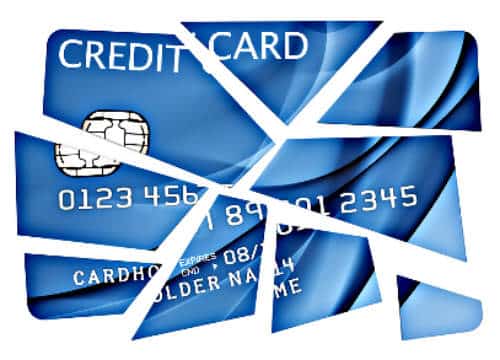Q. You mentioned that closing credit card accounts hurts your FICO score. If you closed accounts years ago, what is the timeline where it no longer affects your score? I only have one Visa card that I use now. I had no debt issues, just wanted to streamline my cards. Also, do store cards (Macy’s, Nordstrom, Eddie Bauer, Loft) also have the same affect, or is it only Amex, Visa or Mastercard? When the store closes your account, from no usage, does that have any affect?
A. From a credit-scoring standpoint, it doesn’t matter whether you closed an account or a creditor/store closed it. Either way, the account will shown as closed and it will have a notation such as “closed by creditor grantor,” “closed by credit issuer” or it will say “closed at consumer request,” if you asked to close the card.
You’ll be happy to learn that if you closed an account years ago, that action isn’t hurting your credit score at all.
Remember: the credit scoring system is designed to show lenders how “risky” you are as a consumer. So your credit score is a three-digit number that, in essence, judges the likelihood that you will default on a loan or credit obligation within the next two years. A high credit score means you’re a low risk and not likely to default; a low credit score means you’re a high risk and more likely to default.
To assess risk, the credit scoring system places a high premium on your recent credit behavior. For instance, if you recently paid a bill late – say two months ago – that’s a higher indication of credit risk than if you paid a bill late two years ago.
In general, my best guess is that if you closed an account anywhere from six or more months ago, it’s not really having an impact on your credit score any more. The exception to this is scenario is when someone closes multiple accounts and then puts all their debts onto one credit card. This can backfire in two ways. First, it reduces their available credit. It also can cause the one remaining credit card to carry a high balance. Both things hurt your credit usage ratio (i.e. the percentage of credit card charged relative to the credit line you have available).
Lastly, closing retail or department store cards can impact your credit rating just like closing national brand cards, such as Visa, MasterCard or American Express. The difference, of course, is that the latter cards are more likely to have larger credit limits, so closing those can often have a greater negative impact on your credit utilization ratio.
Missed Payment
Q. I mistakenly missed one car payment and the auto financing company noted the late payment on my credit report. I haven’t missed a payment since. How long can the credit reporting agency include the late payment on my credit file?
A. Under the Fair Credit Reporting Act, negative information such as a late payment can remain in your credit files for seven years from the date of that missed payment. More severe credit problems, like bankruptcy, can legally stay on your credit reports for 10 years.








